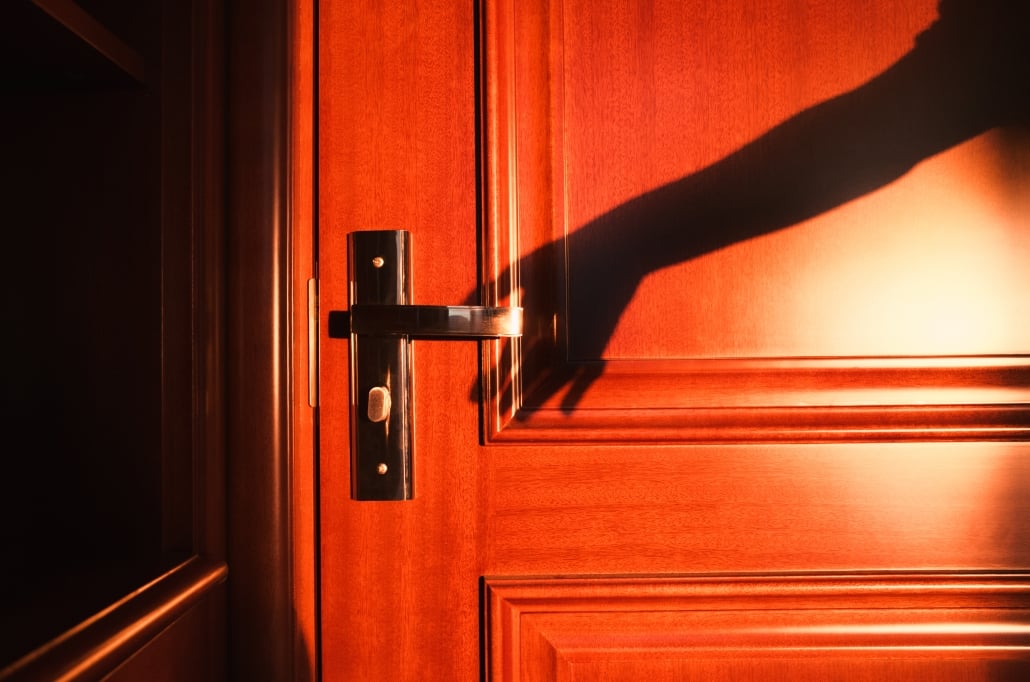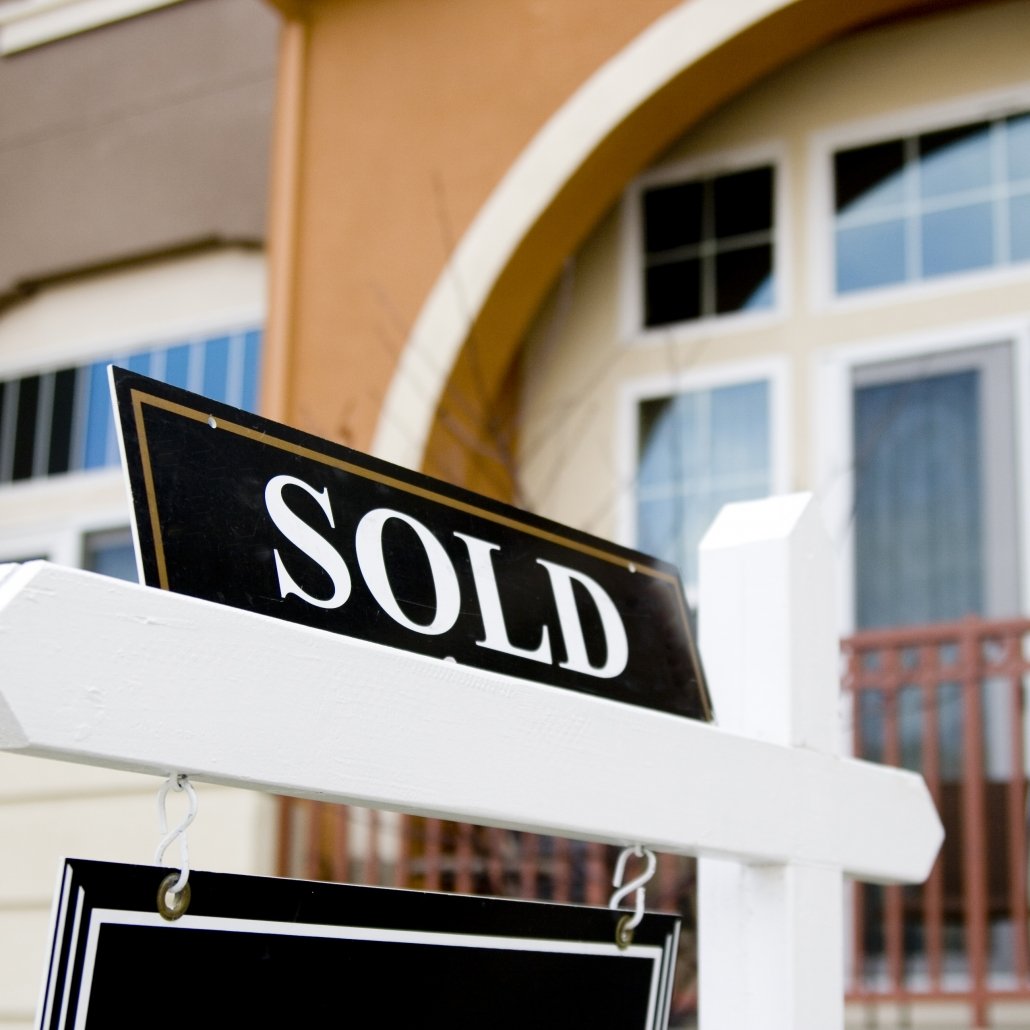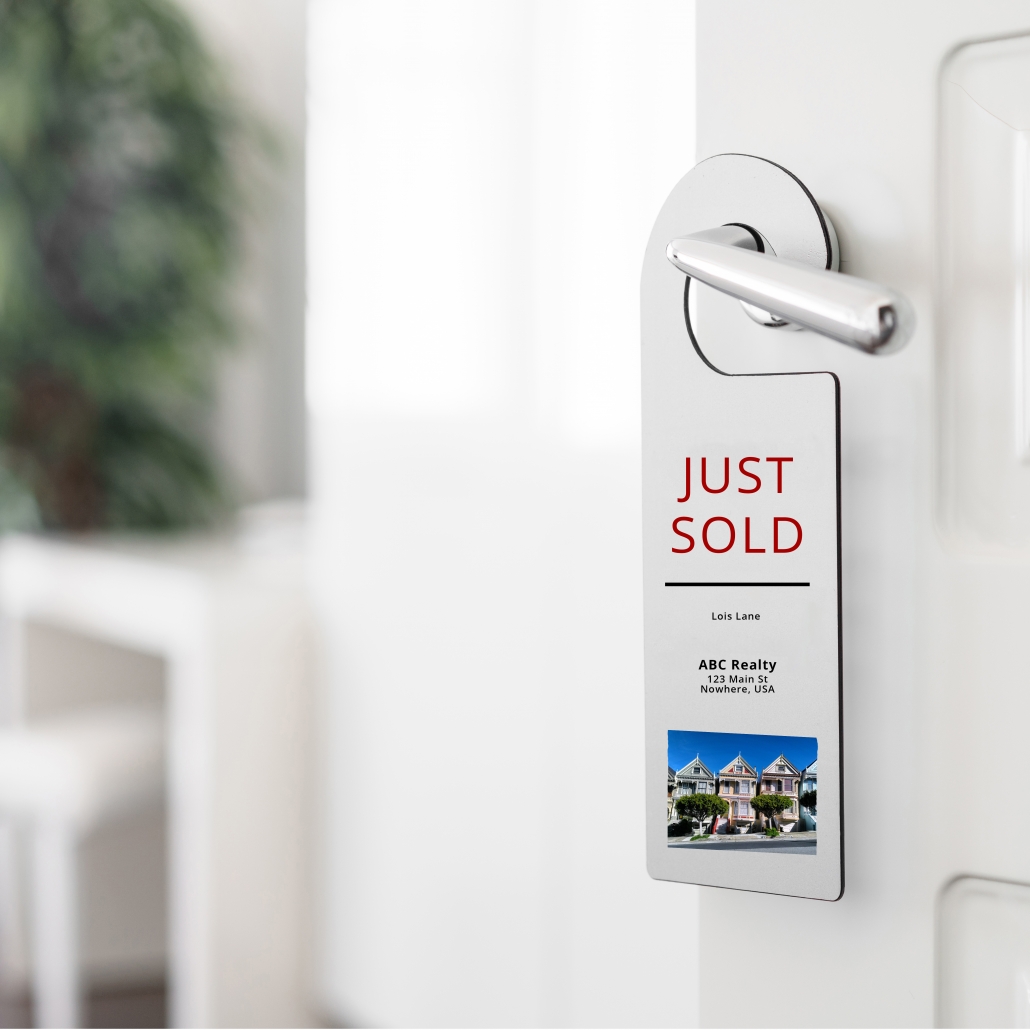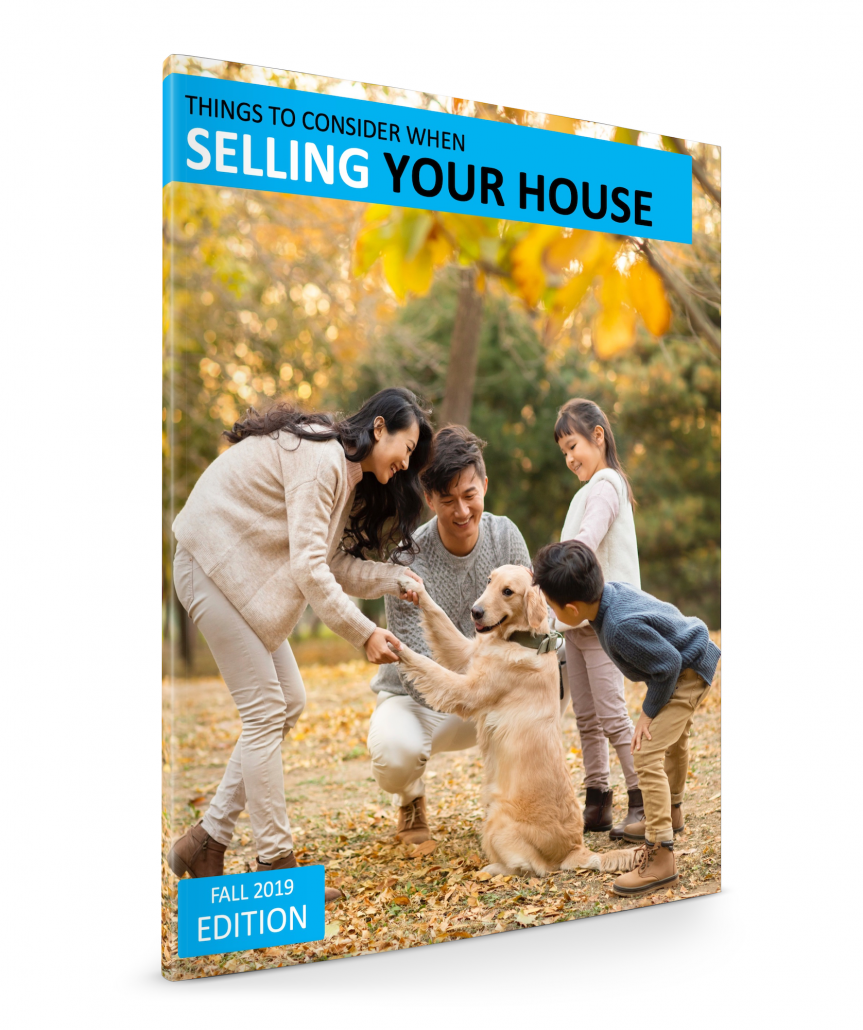Trick or Treat: 5 Ways to Make Door Knocking Less Scary
Door knocking. The mere thought of the word probably sends a shiver down your spine. Sweat begins to bead on your forehead, your heart rate quickens, and your throat gets dry.
As a realtor, door knocking can be an unnerving part of the job and not all agents have the stomach for it.
However, many top realtors swear by this “old-school” lead generation method, and the return on investment from hitting the road is worth the risk of door slams or blisters.
Oh yeah. And other than some awkward interactions and shoe wear, it costs you absolutely nothing but time.
Real connections are made face-to-face, and some agents will average five seller leads an hour. Not a bad way to get your steps in.
Here are some ways real estate agents can face their fears, make door knocking less scary, and profit from all the hard work.
Have a Strategy
Want to turn one listing into two, three, four, or more? Here’s how.
First, you should know that knocking on random doors won’t do much good.
In order for door knocking to be effective, you need to pick your route strategically.
A good starting plan is to have a little bit of everything: FSBOs, new expired listings and old expired listings (aka turbo doors).
Because turbo doors have a higher chance of conversion, agents recommend picking one each door-knocking day, and then fanning out to the surrounding homes. That way you spend more time on your feet and less in the car.
Another great door knocking strategy is the 10-10-20 rule. If done right, this strategy can turn one seller listing into many.
Here’s the gist: if you have a new seller listing, you should door-knock the 10 homes on the right, 10 homes on the left, and 20 homes across the street. This is a great chance to invite them to a neighbors-only open house or ask area-specific questions.
It’s also a great way to establish your market, put a face to your name, and demonstrate to prospective clients that you work hard to get homes sold.
Watch this video to see the 10-10-20 in action and learn how you can implement it into your seller strategy.
Know What to Say
Before you start strutting up and down streets, you need to know your scripts.
Not surprising to anyone, people don’t like slimy door-to-door salespeople. In order to make yourself stand out, you have to be friendly, genuine, and say exactly the right thing.
The best way to do this is to offer them something that’s too good to pass up. For instance, you just sold a house on their block that had five offers and sold for $15,000 over the asking price.
That means there are four other buyers looking to buy a home just like theirs, and they’ll pay a premium for it.
That’s information that only you have, so use it to your advantage.
Secondly, Raleigh-based agent, Dylan Hale, recommends using a little psychology in your sales technique. Instead of coming right out the gate with an, “Are you interested in selling right now?” he will ask them a simple favor: advice on the hyper-local area.
Essentially, someone who has done you a favor is more inclined to do it a second time. It’s called the Benjamin Franklin Effect, and it can be a really useful tool in sales.
Hale will start by asking neighborhood advice to help sell a listing. Then, further down the conversation, he will ask for their email. More times than not, they will oblige.
Hard sells come off, well, too sales-y. Try this trick the next time you go door knocking.
Be Prepared
You should never show up to door knock homes without having done some serious research on the local market. You only get one chance to make a first impression. Make it count!
“Spend a few hours in your MLS system the night before you go out to see how many homes sold in the neighborhood in the last 30 days, how many sold under or over list price, as well as general trends about the market,” said Loida Vasquez, a Los Angeles Realtor with EXP Realty.
Other agents also recommend utilizing a competitive market analysis or a Professional Equity Assessment Report.
The top two questions you will get from homeowners are “What will my house sell for?” and “How fast will my house sell?”
You need to be prepared to answer these questions. If you sound like an expert, they’ll trust you are one.
Don’t Show Up Empty-Handed
Knock knock. No one home?
Before you breathe that sigh of relief, it doesn’t mean you’re off the hook.
If someone didn’t answer, this is a great chance to leave a flyer, buyer and seller guide, door hanger, or business card.
Some agents even recommend a handwritten note as a more personal touch.
In his first year in the business, Keller Williams-Canada Mega Agent Tom Mitchell brought in $38 million in sales from door knocking. If you don’t get to speak with a real person, this is what he recommends:
“If I don’t get to talk to someone, I leave my business card or one of our marketing pieces, they think ‘Wow, Tom was working in extreme heat or frigid cold.’ People remember that kind of thing and keep your card in a safe little spot until they’re ready to call.”
Don’t Be Afraid of Rejection
You’re a realtor, so you know rejection is one of the less favorable parts of the job.
The good news is: people are a lot less likely to be rude to your face.
Sure, it’s no secret that you’re going to get your fair share of “I’m not interested” in door knocking.
When that happens you should handle the rejection with grace, smile and say something like “thank you for your time.”
Even if they don’t initially take to your pitch, good impressions are lasting impressions.
On the other hand, getting a bunch of rejections in a row can weigh down on your self-esteem. Staying positive and confident is a big part of keeping up the energy. If you start to find yourself getting a little down, head back to your car for a 5-minute reprieve.
Whether it’s saying a few positive affirmations or listening to your favorite “pump-up” song, good energy is key to door knocking.
Extra Tips
- Body language matters. Don’t stand directly in the doorway, as this can be intimidating. Stand a couple of feet back and a few steps off from the center. And whatever you do, never cross your arms.
- Door knocking may get you the leads, but it’s the follow-up calls that will get you the listings.
- Dress for success. Look professional but approachable and of course, wear comfortable shoes.
- Tell them you only have a minute. This clears up any anxiety that they’re going to get locked into a 4-hour sales pitch.
- Test out times. Generally, the best time to door-knock is between 5 and 6 PM on weekdays and Saturday mornings. Start here and adjust based on your findings.
Bottom Line
Door knocking is a bit like going to the gym. Getting there is the hardest part.
Once you get into a rhythm, it becomes second-hand.
Although door-knocking may not be a cakewalk, there are big perks to grabbing a bunch of business cards or buyer/seller guides and taking your sales strategy afoot. Once you figure out tactics that work best for you and your area, you can implement it into your sales plans.
At the end of the day, it’s a sign that you work hard and people appreciate that. The hustle counts and will go a long way as you build your real estate business.
There is no such thing as being too prepared and handouts are a great way to provide value without being overly ambitious or sending the wrong message.
For door knocking, some of the best materials you can have on hand are the KCM Seller Guides. They’re branded for you, professionally designed and easily printed for a polished look that sets you apart from competitors and establishes you as a trusted advisor.
You can get your own Seller Guides for free by signing up for a 14-day trial. Test them out and see how they work the next time you go door-knocking.











